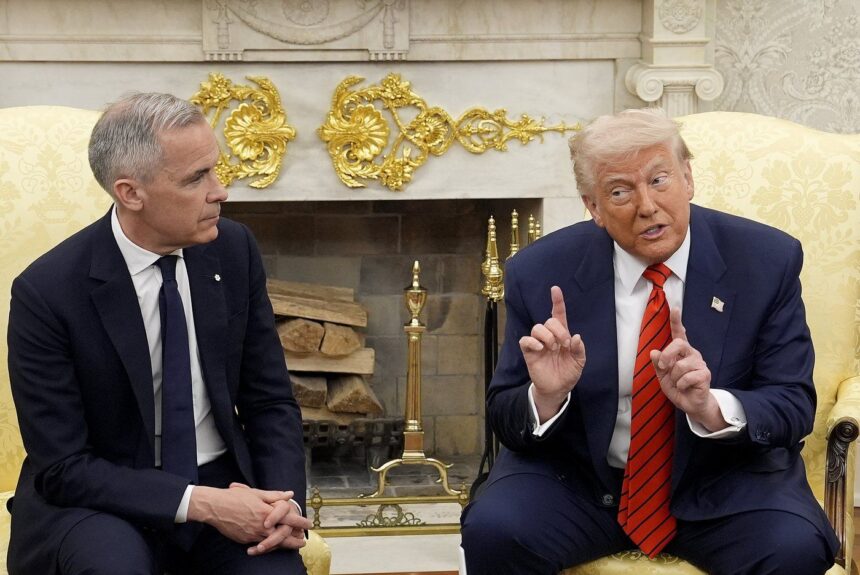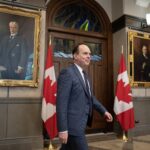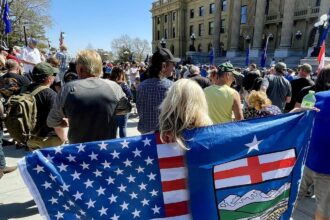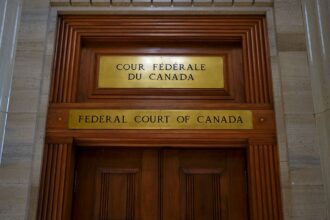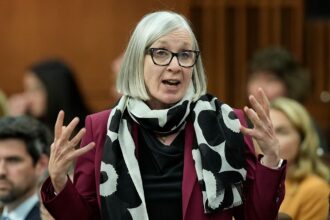In a decisive move signaling a renewed focus on North American diplomacy, Prime Minister Mark Carney executed a significant cabinet shuffle yesterday, restructuring the team responsible for managing Canada’s crucial relationship with its southern neighbor. The changes come at a pivotal moment as both nations navigate complex trade negotiations and shared security concerns across the continent.
“The Canada-US relationship remains our most important bilateral partnership,” Carney stated from the steps of Parliament Hill. “These appointments reflect our commitment to strengthening this bond while vigorously representing Canadian interests on the international stage.”
At the center of the reorganization is the appointment of Chrystia Freeland as the new Minister of Foreign Affairs, returning her to a portfolio she previously held with distinction. Freeland, known for her tough negotiating stance during the USMCA talks in 2019, replaces Mélanie Joly, who moves to lead the newly expanded Ministry of International Trade and Export Promotion.
“Our approach to the United States must be both principled and pragmatic,” Freeland remarked following her appointment. “We share the world’s longest undefended border, over $2.5 billion in daily trade, and deeply integrated supply chains that support millions of jobs on both sides.”
The shuffle also elevates François-Philippe Champagne to a newly created position as Special Envoy for U.S. Relations, where he will coordinate cross-border initiatives on critical minerals, clean energy transition, and border management. This appointment underscores Ottawa’s strategic focus on resources deemed essential for both nations’ economic security.
Industry stakeholders have responded positively to the changes. Dennis Darby, President of Canadian Manufacturers & Exporters, noted that “this recalibration recognizes the critical importance of maintaining smooth trade relations at a time when protectionist sentiments continue to influence policy discussions in Washington.”
The shake-up comes amid ongoing tensions over key bilateral issues, including softwood lumber disputes, dairy market access, and the implementation of Buy American provisions that potentially threaten Canadian supply chains. Recent data from Statistics Canada shows Canadian exports to the U.S. reached $477 billion in 2024, accounting for 75% of total exports, highlighting the economic significance of the relationship.
On Parliament Hill, opposition critics questioned the timing of the shuffle. Conservative Leader Pierre Poilievre suggested the moves were “more about political optics than substantive policy changes,” while NDP Leader Jagmeet Singh called for greater focus on protecting Canadian workers in any future trade negotiations.
Political analysts view the reorganization as part of Carney’s broader strategy to assert Canada’s position on the global stage. Dr. Laura Macdonald, professor of political economy at Carleton University, observed: “This cabinet adjustment reflects Carney’s pragmatic approach to governance. He’s positioning experienced negotiators in key roles at a time when managing the U.S. relationship requires both diplomatic finesse and economic expertise.”
The cabinet changes also include the appointment of Randy Boissonnault as Minister for Border Security and Northern Economic Development, a role that will tackle increasing migration pressures and coordinate infrastructure investments along the 8,891-kilometer shared border.
As Canada and the United States prepare for high-level diplomatic engagements in the coming months, including the North American Leaders’ Summit scheduled for September in Ottawa, these cabinet adjustments signal Carney’s determination to navigate the complex waters of continental politics with a refreshed and strategically positioned team.
The question now becomes: Can this recalibrated diplomatic corps effectively advance Canadian interests while maintaining the delicate balance required in the asymmetrical relationship with the world’s largest economy?

